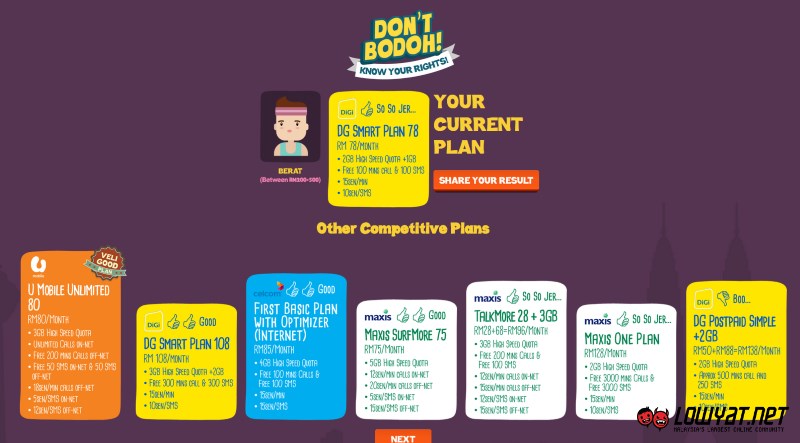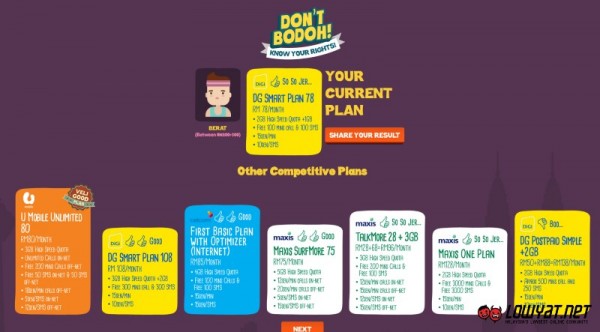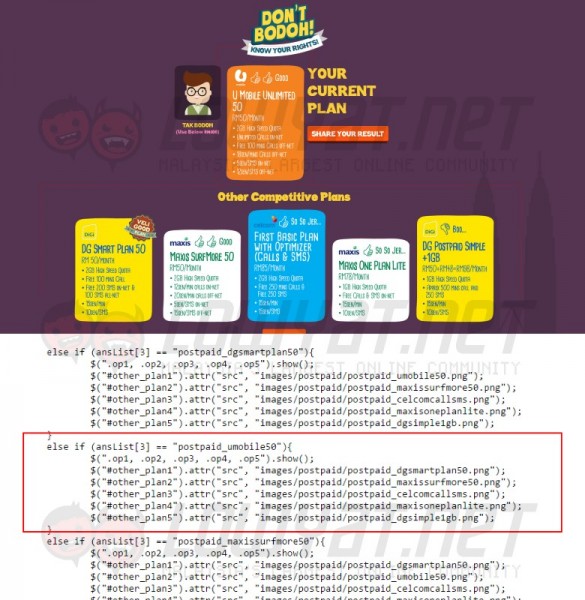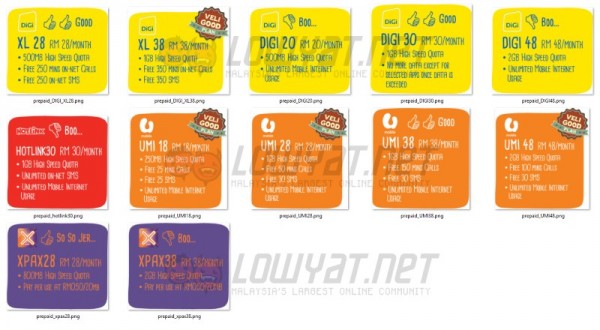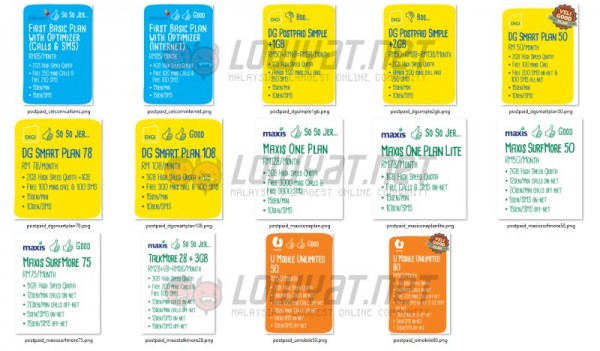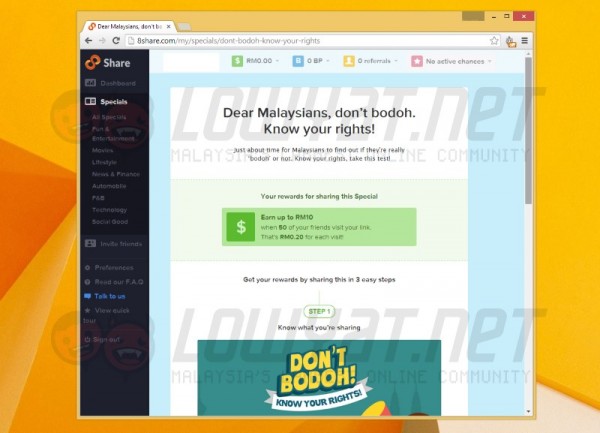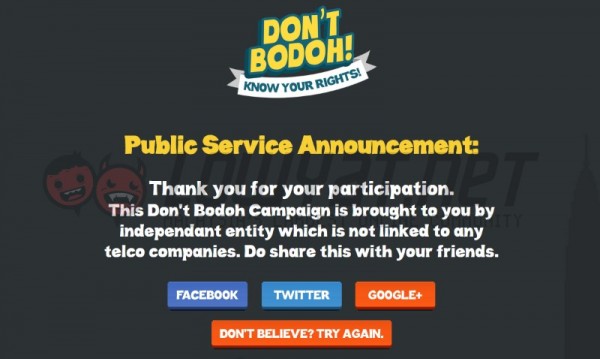Claiming itself as an “independent entity that is not linked to any telco companies“, Don’t Bodoh looks like a nifty, professionally-done website that apparently allows users to “compare” telco plans and determine which one is most suitable to them. As we dug deeper in our effort to learn more about this particularly secretive “independent entity”, we learned that Don’t Bodoh is misleading users into believing that the site is actually giving sound advice to them.
In fact, Don’t Bodoh can be considered as a fraud depending on how you look at things.
Before we start, let’s go through how the site operates. First, it asks users to key in the amount of their average phone bill each month. After that, users are then asked to choose what plans they are currently using from Maxis, Celcom, DiGi and U Mobile, both for postpaid or prepaid lists.
Once the choice has been made, the site will then “calculate” and compare the user’s choice with a number of alternative plans. Each of these plans also come with their own rating from “Boo” being the worst and “Veli Good Plan” as the best.
As it turns out, the site doesn’t actually make any comparisons using users’ data. Instead, the results are already pre-determined according to the type of telco plans that users choose. This isn’t some outlandish claim either; it is revealed through the site’s JavaScript code which you can obtain right here. We have a copy of the code here as well in case it is altered after this article is published.
One example (as shown above): if a users chooses U Mobile Unlimited 50, the result will also show DG Smart Plan 50, Maxis SurfMore 50, Celcom First Basic Plan with Optimiser for Calls & SMS, Maxis One Plan Lite, and DG Postpaid Simple +1GB – in that sequence too, just like what has been written in the JavaScript code.
In addition, these “ratings” for telco plans are not churned out dynamically according to what the users key in, but instead they have been pre-determined early on. So, in other words, DG Postpaid Simple +2GB’s “Boo” and Smart Plan 50’s “Veli Good Plan” ratings (as examples) are not due to any actual comparison to the user’s bill amount and their existing plans, but it is because the creators of the Don’t Bodoh campaign said so.
Below is the full set of “ratings” images that we extracted from the Don’t Bodoh website:
So, what about the phone bill amount that users input earlier then? Well, it is used to just determine the four types of consumers, from “Tak Bodoh” to “Bizness Sangat”. The site is also coded not to accept RM0 or any amount more than RM1,000.
What’s more, there’s no way one can determine how good a telco plan is just by current expenditure alone. Other factors, such as network coverage, play just as important a role in determining what’s the best plan for the user.
Now that we have debunked how the website operates, there is still another unanswered question: who are the people behind this Don’t Bodoh campaign? While a WHOIS search reveal that the Don’t Bodoh URL was registered by Cenxus Multimedia, we highly doubt that the Petaling Jaya-based “interactive agency” is the actual owner of the campaign.
What’s more puzzling is the fact that those behind this campaign have most probably have forked out money to spread the campaign through 8Share, a Malaysia-based social media marketing platform. This alone shows that this campaign isn’t as independent as it is portraying itself to be. What’s more, the pre-determined results appear to favour not just one telco, but two competing companies. We’ve also received confirmation from the two other telcos that they were completely in the dark about this campaign.
Hence, the question remains: what is the actual motive behind Don’t Bodoh?
Regardless, Don’t Bodoh’s website is very well done – and has the right intentions – but it is fair to say that the campaign is an outright lie since the whole website is designed to not do any actual comparison based on users’ input, and the results were pre-programmed. So, it is wise not to put your money based on the results that the Don’t Bodoh’s website churn out. Better yet, make your own comparisons with our comprehensive list of postpaid plans in Malaysia.
Meanwhile, what do you think of the website? Head on to the Kopitiam section of Lowyat.NET to discuss it.
Follow us on Instagram, Facebook, Twitter or Telegram for more updates and breaking news.


